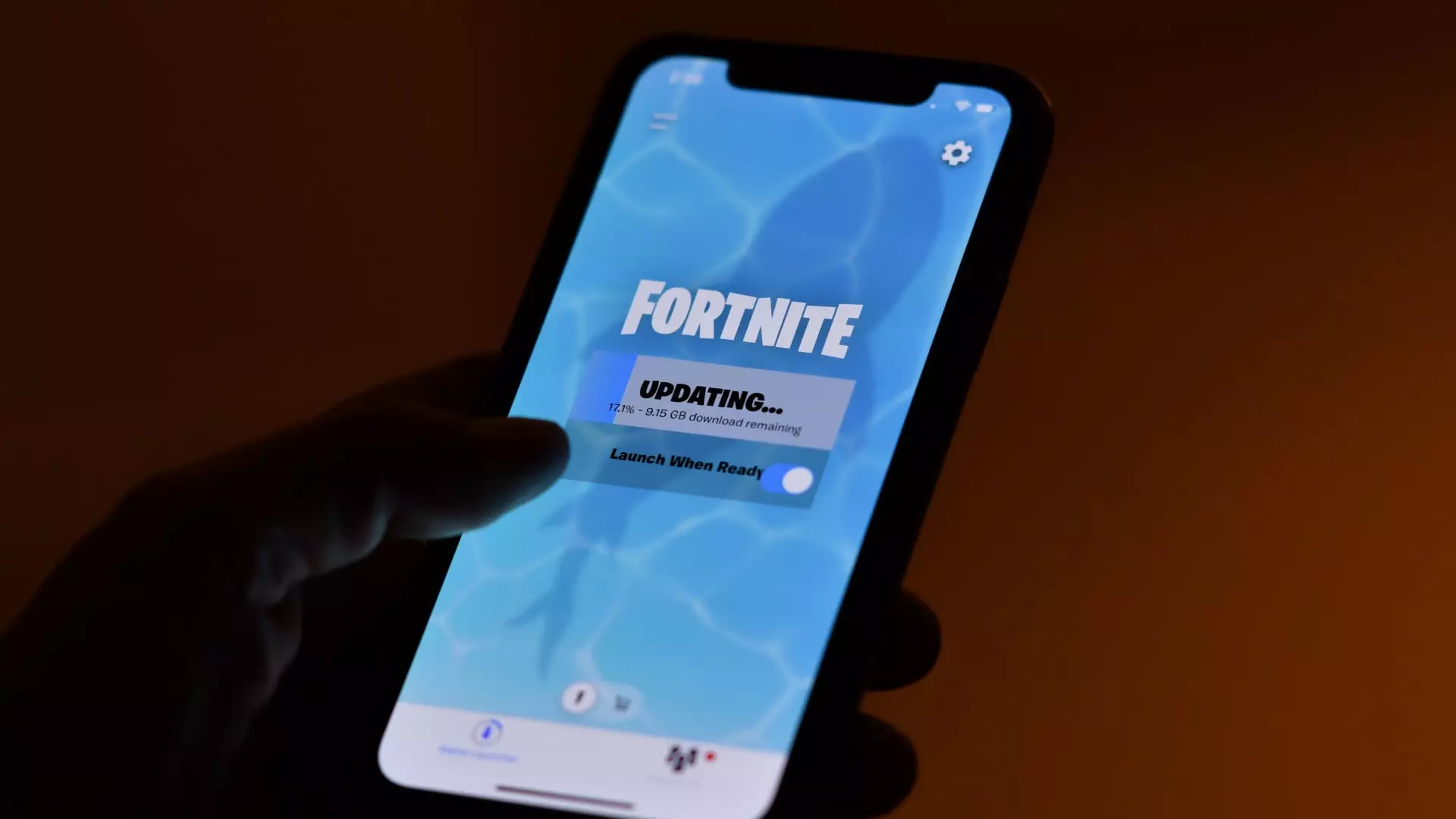Apple is currently embroiled in a complex legal conflict with Epic Games that reveals both the challenges and transformations in the digital marketplace. At the center of this growing tension is Fortnite, a wildly popular game that has found itself continually sidelined from Apple’s iOS App Store. A recent order from U.S. District Judge Yvonne Gonzalez Rogers appears to set a critical timeline for the tech giant, while simultaneously spotlighting the broader implications for app distribution and developer rights.
The Legal Framework of Disruption
The saga began in 2020 when Apple removed Fortnite from its platform after Epic integrated a direct payment system that circumvented Apple’s standard payment protocols. This act was not simply a breach of policy; it ignited a legal battle that questioned the monopolistic control exercised by Apple over its App Store. Rogers’ earlier rulings indicated that, while Apple initially triumphed in the first round of legal proceedings, it faced an evolving landscape of legal and regulatory scrutiny, particularly concerning its fees and policies that restrict developer options. In the wake of her recent order, the stakes have been raised. Apple’s responsibility to resolve this latest issue with Epic Games is being scrutinized far more than ever before.
The judge’s assertion that “Apple is fully capable of resolving this issue without further briefing or a hearing” suggests a strong push for accountability. The upcoming court date has the potential to reshape the relationship dynamics between Apple and app developers as the tech behemoth faces scrutiny over its governance. If no resolution is reached, an Apple executive—revealingly described as the responsible party—will be required to appear in court, ensuring that the company is not able to sidestep its obligations or responsibilities.
Fortnite’s Disheartening Detour
Epic Games has wasted no time in voicing its frustrations regarding Apple’s actions, claiming that the tech giant has neither accepted nor outright rejected its latest submission of Fortnite. Instead, Apple has reportedly chosen to delay a response until the Ninth Circuit Court addresses its stay request. This lack of engagement presents an alarming scenario in which a company with substantial market influence can effectively hold hostage a game that has become a cultural phenomenon. Tim Sweeney, CEO of Epic Games, expressed his frustration on social media, highlighting a corporate behavior that many see as an abuse of power.
As the legal battle continues to unfold, the implications extend far beyond Fortnite. The inertia surrounding the game’s restoration signals an enduring conflict within the app ecosystem, particularly striking at the heart of developer autonomy and revenue generation. The delayed reintroduction of Fortnite raises pressing questions about how companies like Apple handle disputes and their overarching responsibility to foster a fair environment for all app developers.
The Ripple Effect of Court Orders
Rogers’ decisions in this protracted saga have already initiated notable shifts within the industry, evidenced by the decisions of other companies like Spotify and Amazon Kindle to revise their apps to allow for purchases outside of the App Store. This development indicates that the challenges posed by Apple’s policies are significant enough to warrant adjustments in broader industry practices. If these companies can adapt and find ways to mitigate their financial obligations to Apple, the ripple effects would be monumental, potentially transforming developer relationships with Apple across the board.
The enduring essence of this legal showdown between Epic Games and Apple underscores a monumental shift in how content creators are navigating the treacherous waters of app distribution and revenue models. As developers weigh the risks of engaging with Apple against the potential rewards of forging their own paths, the outcome of this legal confrontation could serve as a benchmark for future regulatory practices—and might even encourage more competitive offerings within the app ecosystem.
The Bigger Picture
This legal quagmire between Epic Games and Apple isn’t merely a tale of two corporate giants clashing. It encapsulates the ideological struggle over a fundamentally shifting digital economy, wherein traditional business models are being tested against innovative practices. As the legal landscape evolves, so too will the strategies employed by both tech titans and independent developers alike. The outcome of this court battle not only influences the immediate future for Fortnite but also sets a crucial precedent for how digital marketplaces operate, leaving an indelible mark on the very fabric of the app economy. The stakes have never been higher.

